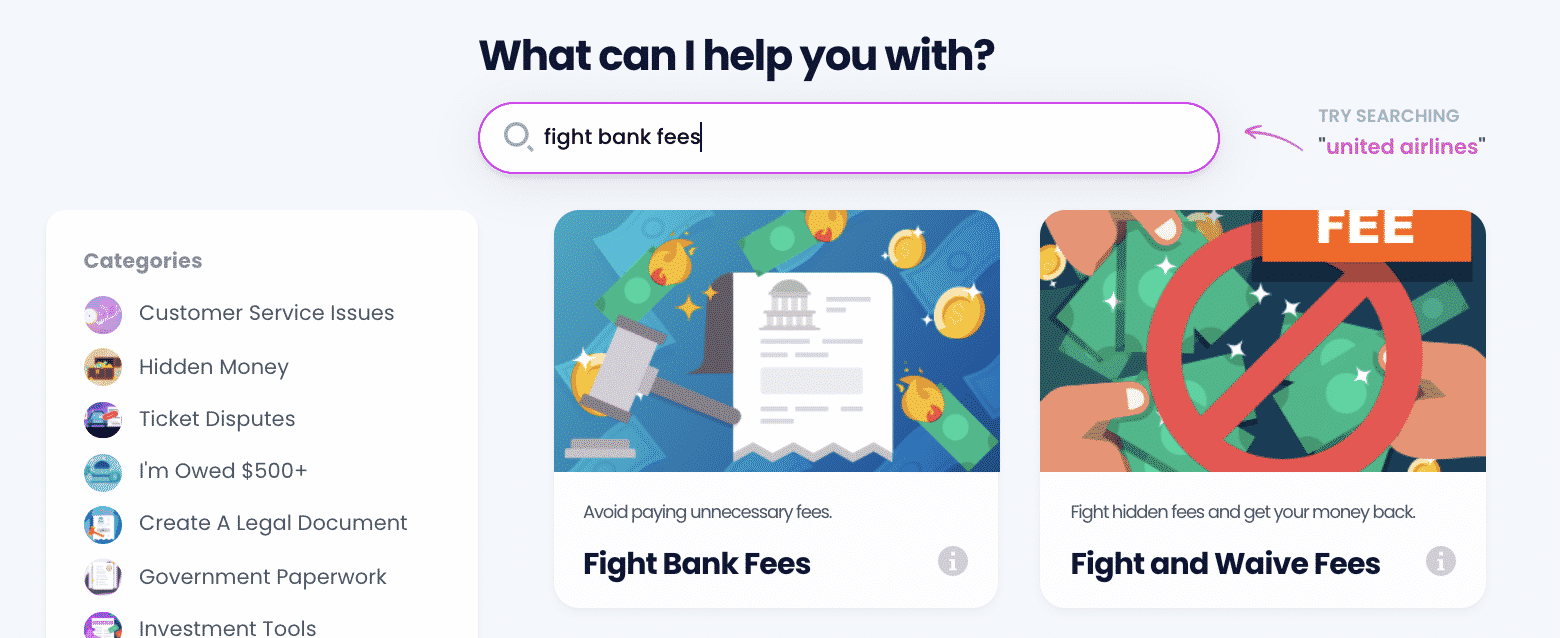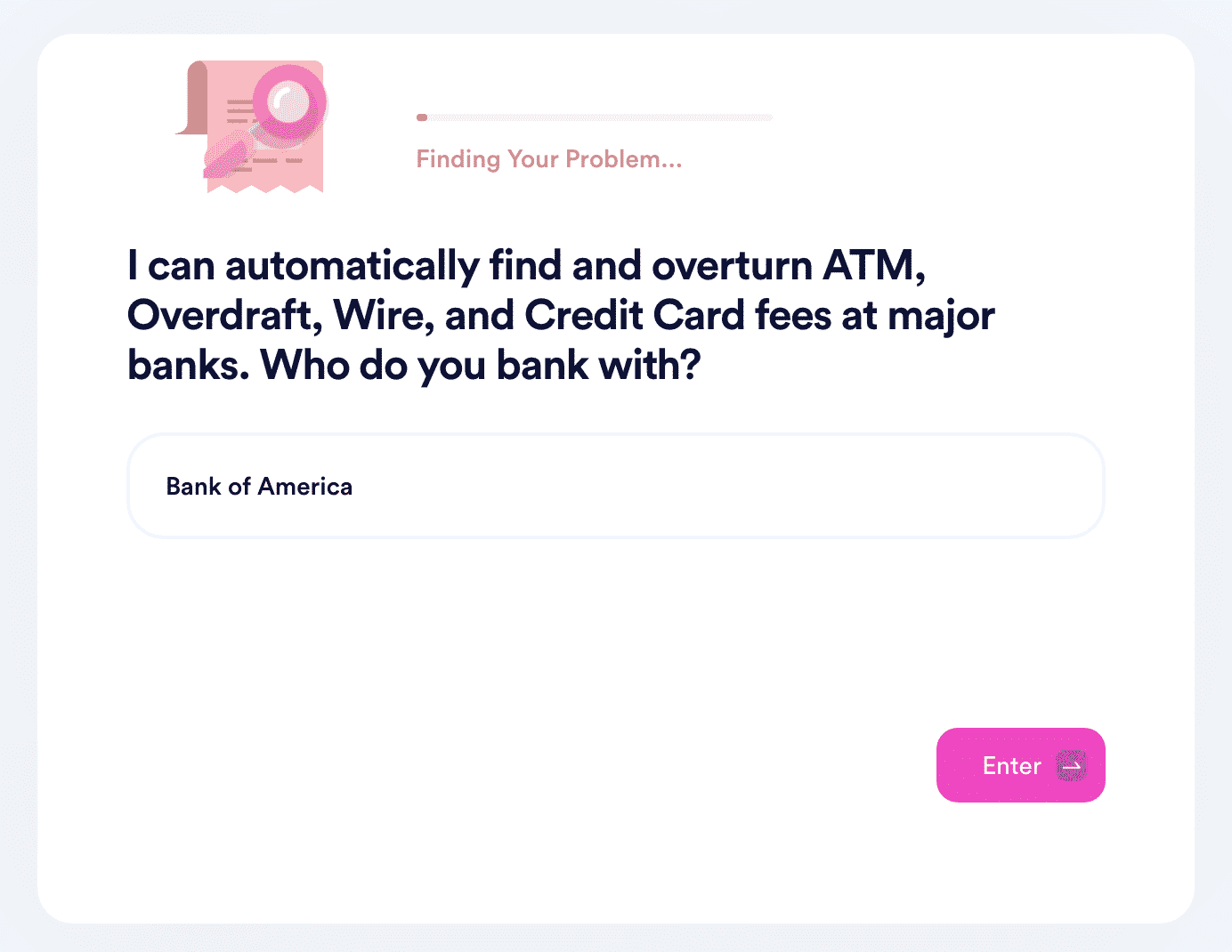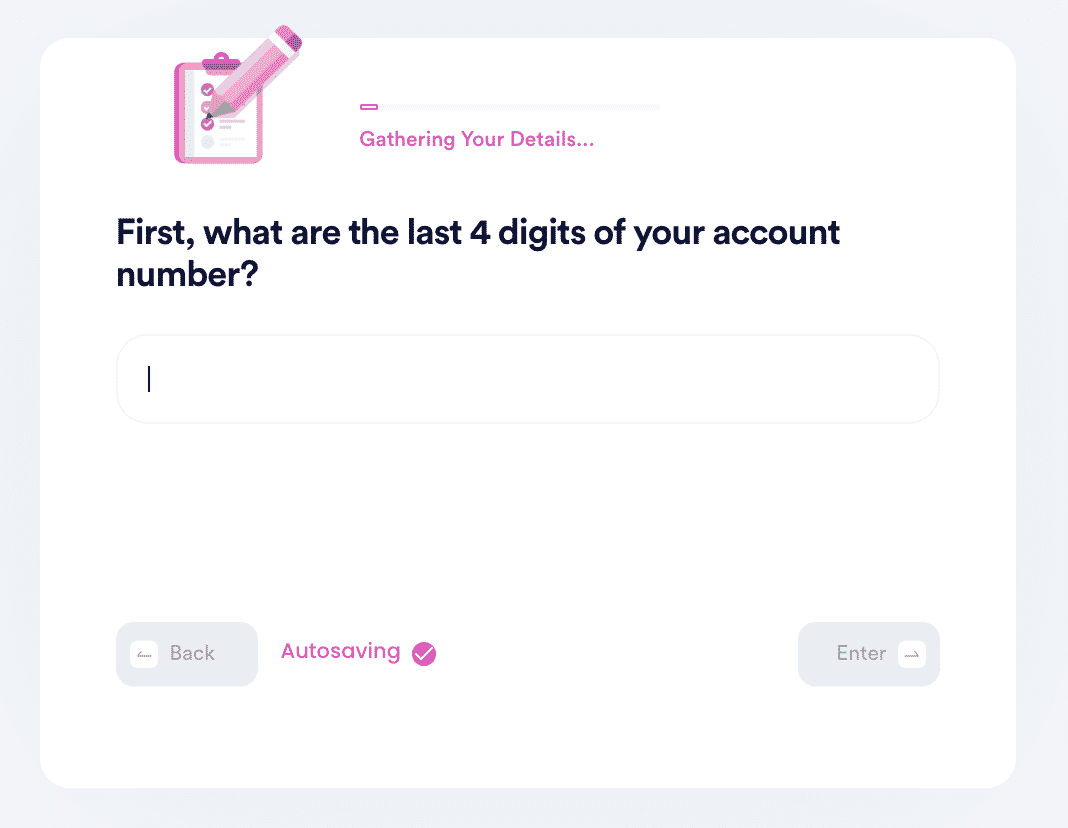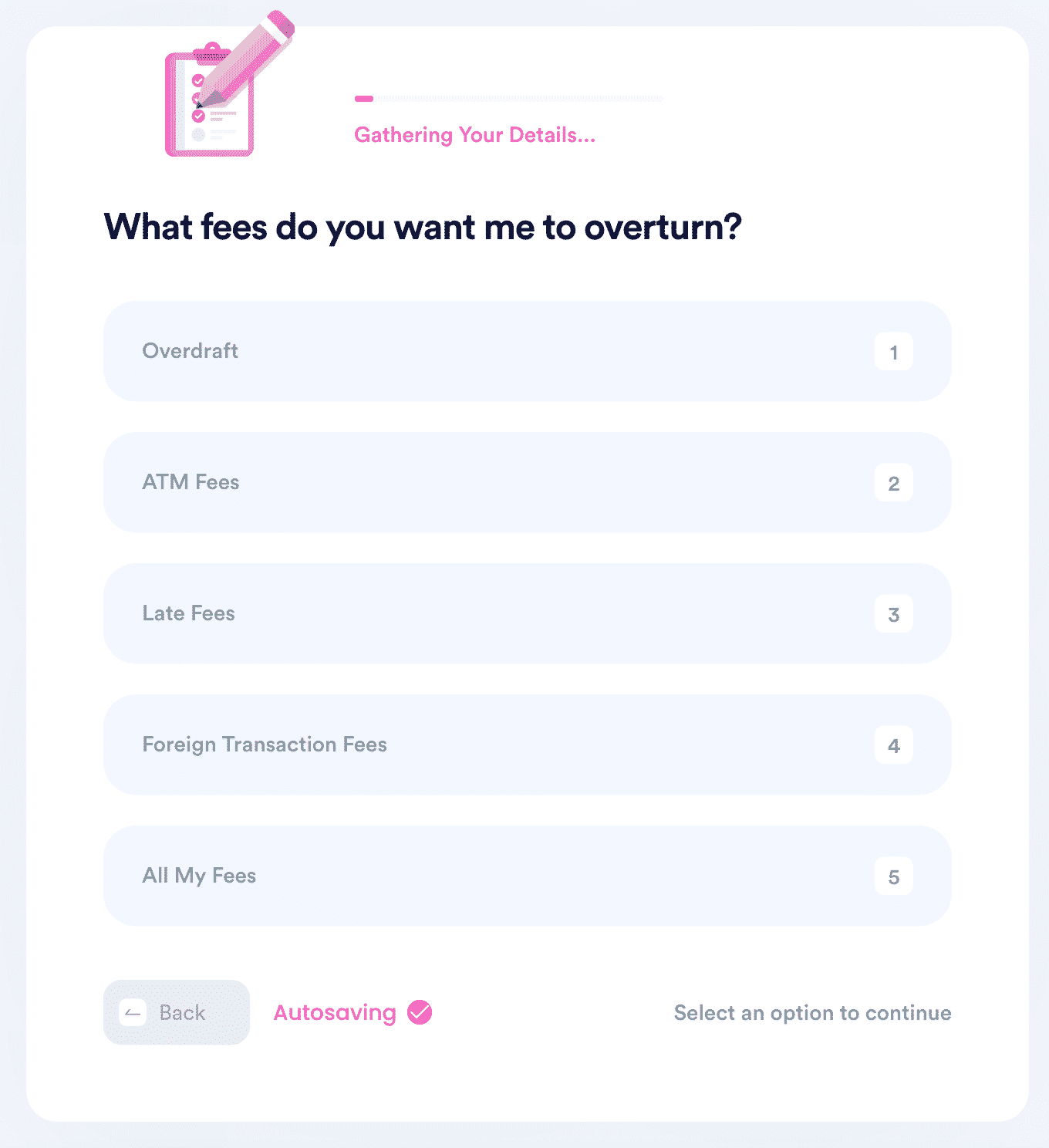How to Waive Bank of America Foreign Transaction Fees
If you've ever used your Bank of America credit card outside of the US, you've most likely come across international bank fees. These charges are usually tucked away in your terms and conditions, and since most of us barely read the T&Cs, we miss them easily. You may be wondering, what are these charges, and are they always the same, or do they change with every transaction?
are usually 1% to 3% of your total purchase amount, and while they may not seem like a big deal, they can have a significant effect on your finances, especially if you are a huge spender. Luckily, DoNotPay has a solution to avoid such fees.
What Are Foreign Transaction Fees?
A bank foreign transaction fee refers to a surcharge on your credit card that appears after you purchase something in another currency other than the US dollar or your purchase passes through a foreign bank.
Many credit card issuers charge this fee with a rate ranging from 1% to 3% of the transaction. This fee consists of two categories:
- Currency conversion fee: Also called a network fee, this fee is charged by a credit card network such as Visa and Mastercard. These networks usually charge a 1% fee of the purchasing amount regardless of the type of credit card you use.
- Issuing bank fee: Some credit card issuers like Chase and Barclays add a 2% charge on top of the network fees.
While there are two categories of foreign transaction fees, they are typically assessed as a single charge in your statement.
Here's a glance at foreign transaction fees for major issuers:
| Issuer | Issue Fee | Network Fee | Total FTF |
| Bank of America | 2% | 1% | 3% |
| American Express | 2.7% | - | 2.7% |
| Capital One | - | - | - |
| Chase | 2% | 1% | 3% |
| Citi | 2% | 1% | 3% |
| Discover | - | - | - |
| Wells Fargo | 3% | 1% | 4% |
When Do Banks Charge Foreign Transaction Fees?
A credit card issuer may flag transactions as foreign if the purchase is made using foreign currency or passes through a foreign bank. It's worthy to note that you don't have to be located outside the US to get a bank foreign transaction fee on your statement. You can get charged an FTF if:
- You purchased something from a merchant located outside the US
- You bought something in foreign currency
- The purchase is routed through a foreign bank even when it's charged in US dollars
Bank of America Foreign Transaction Fees Explained
The Bank of America credit card is 3%. However, this fee can change depending on the card itself, as some cards are an exception.
Here is a rundown of Bank of America credit cards that will charge you an international transaction fee:
| Card Name | FTF | Card Name | FTF |
| Customized Cash Rewards | 3% | Customized Cash Rewards Secured Credit Card | 3% |
| Unlimited Cash Rewards | 3% | Susan G. Komen Cash Rewards | 3% |
| Bank Americard | 3% | Bank Americard Secured | 3% |
| Bank Americard for Students | 3% | Cash Rewards for Students | 3% |
| Unlimited Cash Rewards for Students | 3% |
Tips for Avoiding Foreign Transaction Fees
Regardless of your travel budget, it's always best to avoid bank foreign transaction fees as they don't add value but take money away from you instead. Here are ways to avoid incurring such costs:
- Understand your card terms
- Exchange your money before you leave
- Open a bank account with no FTFs
- Get a credit card that doesn't charge FTFs. Travel cards usually don't charge foreign transaction fees.
- Check ATM fees first before using international ATMs
- Ensure your card reimburses ATM fees
Get Rid of Foreign Transaction Fees with DoNotPay
DoNotPay can help you eliminate in four easy steps. This is how it works:
- Open the DoNotPay Fight Bank Fees product.

- Enter the name of your bank.

- Verify the last 4 digits of your bank account.

- Choose which fees you want to waive, including overdraft, ATM, and transaction fees.

And you're done. Once you've finalized everything, DoNotPay will send a appeal letter to the institution on your behalf. If B of A has further comments regarding your appeal, they will reach out to you directly.
DoNotPay Works across All Companies with the Click of a Button
Helping you fight bank foreign transaction fees isn't the only thing we can do for you. DoNotPay can help you with overdraft fees from various other banks, including:
We can also help you:
- Get a Bank of America overdraft fees refund
- Learn about banks that don't charge overdraft fees
- Understand how much money you need to transfer funds from PayPal to your bank
What Else Can DoNotPay Do?
DoNotPay services extend outside banks and products like bank foreign transaction fees. Our other services include helping you:
- Make insurance claims
- File a complaint
- Deal with bills
- Find missing money across the country
Try DoNotPay today and reap the rewards.
 By
By